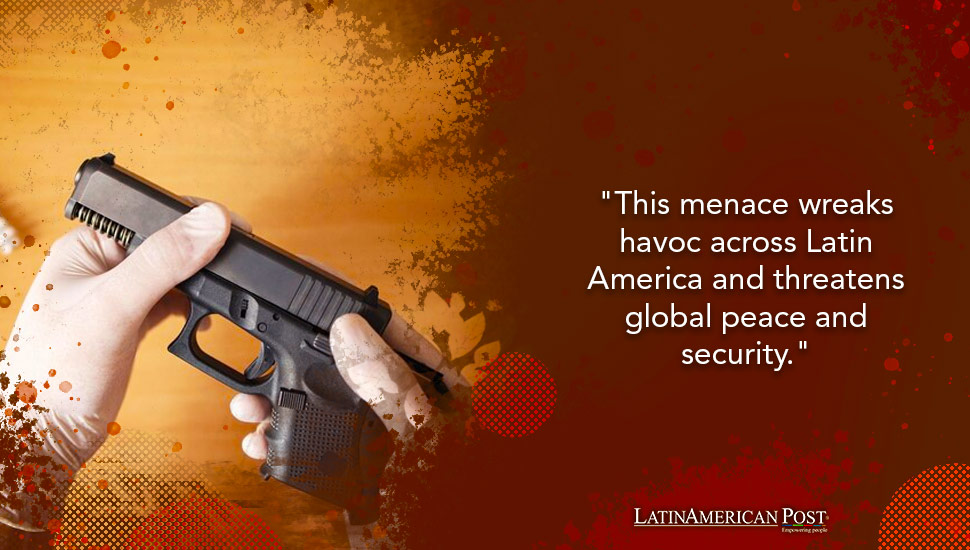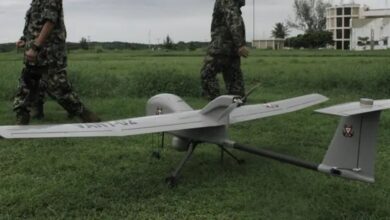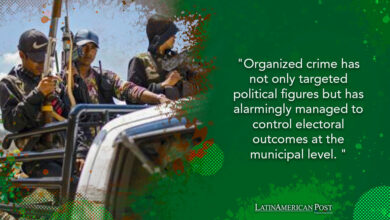Latin American Unity Key to Dismantling Illegal Gun Trade Networks

The extradition of Honduran David Campbell, a key figure in supplying arms to MS-13, underscores the urgent need for international collaboration to curb the rampant illegal gun trade affecting Latin America and beyond.
The recent extradition of David Campbell, a pivotal figure in the illegal arms and drug trade connected to the notorious MS-13 gang to the United States casts a glaring spotlight on the pervasive issue of international arms trafficking. This incident, part of a broader crackdown involving several high-ranking gang members, underscores the critical necessity of international cooperation in combating the illegal gun trade. This menace wreaks havoc across Latin America and threatens global peace and security.
Unveiling the Networks of Illegal Firearms
Campbell’s extradition and the charges against him and other gang leaders in a federal court in New York illuminate the intricate and expansive networks facilitating the illegal flow of firearms. These networks fuel violence, enable criminal enterprises, and destabilize communities, particularly in Latin American countries where gangs like MS-13 wield significant power. The indictment details extensive criminal activities spanning extortion, narcotics trafficking, and illegal arms dealings, painting a grim picture of the challenges facing law enforcement agencies.
The case of Campbell and his cohorts, including Yulan Andony Archaga Carías, the top leader of MS-13 in Honduras, is emblematic of a more significant systemic problem. The intricate operations of these criminal networks highlight the sophisticated mechanisms employed to smuggle drugs and weapons, perpetuating cycles of violence and corruption. These operations not only devastate local communities but also have far-reaching implications, as evidenced by the flow of narcotics and arms into the United States.
The international dimension of this issue is starkly evident in the collaboration between individuals and groups across borders, underscoring the necessity for a unified global response. The illegal gun trade is not confined by geography; it is a transnational problem that demands transnational solutions. The involvement of various countries in the apprehension and extradition of individuals like Campbell and Archaga Carías showcases the potential of international law enforcement cooperation in tackling such complex issues.
Regional Impact and the Need for Expanded Partnerships
In Latin America, the impact of the illegal gun trade is profound. Countries like Honduras, El Salvador, and Guatemala, often referred to as the Northern Triangle, are particularly affected, with gangs like MS-13 and Barrio 18 exerting significant influence. These gangs’ activities are not isolated to their home countries; their criminal endeavors extend into neighboring nations and beyond, affecting the entire region’s security landscape.
The collaboration between U.S. and Honduran authorities in apprehending and deporting key figures in the illegal arms trade illustrates the critical role of international partnerships. However, this cooperation must be expanded and deepened, involving more nations and international organizations to combat the scourge of illegal firearms trafficking effectively. Such efforts should include sharing intelligence, harmonizing legal frameworks, and coordinating law enforcement actions across borders to dismantle the networks facilitating these illicit flows.
Moreover, addressing the root causes of the illegal gun trade is essential. This entails law enforcement actions and socio-economic initiatives to alleviate the conditions that fuel criminality. Investing in education, job creation, and community development can reduce the allure of gangs and criminal activities, providing alternatives to those who might otherwise be drawn into these networks.
A Call to Action for a Secure Future
The case against Campbell and his associates serves as a stark reminder of the extensive reach and destructive impact of the illegal gun trade. It highlights the necessity of a concerted international effort to address this issue comprehensively. Such an approach must balance rigorous law enforcement measures with proactive social policies that tackle the underlying factors contributing to the proliferation of illegal arms and the violence they engender.
Also read: Latin American Oil Giants Among Top Global CO2 Emitters
The fight against the illegal gun trade in Latin America and globally requires a multifaceted strategy that combines effective law enforcement, international collaboration, and socio-economic development. The extradition of critical figures like David Campbell is a step in the right direction. Still, it must be part of a broader, sustained campaign to dismantle the networks that fuel this trade and to address the conditions that allow them to thrive. Only through a united international effort can we hope to stem the tide of illegal arms and the violence they bring, paving the way for a more secure and peaceful future for communities across Latin America and beyond.





